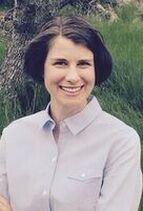 Corinne Dedini Corinne Dedini As teachers, we all have our own flavor of innovation, and we leave for summer with ideas (or, if you’re like me, a stack of haphazard notes in a drawer) to revamp our courses for next year. Sometimes there are new tools we’ve heard about that we want to test out, and sometimes we have a new course to design. Whatever the motivator, teachers are lifelong learners and we seek to grow professionally. I’ve noticed two essential ingredients that are necessary for this growth. First, teachers need time and space for expansive reflection. Second, they need a structure to guide the process of designing for a reimagined learning experience. Here’s how we’ve taken these challenges on. Expansive Reflection Meredith Mikell, One Schoolhouse Astronomy and Marine Science teacher, has to refuel each summer because, in her words, she teaches “intellectual recklessness.” Concerned that so many good science students have a fixed mindset, Meredith spends her summers pursuing her own passions - including attending the annual Star Trek convention! - so that she can shift the learning paradigm for her students. By designing activities that allow for creative application, Meredith’s projects allow students to “discover” basic science principles. For example, the null hypothesis is a notoriously tedious topic to teach because it is so abstract. But Meredith’s Astronomy students uncover its true meaning when they are asked to determine whether their teacher is actually an alien. Far from the rote experimental design question, this crazy origin story inquiry pushes students to the brink of what science can answer, and therein lies the lesson. (Her home planet is earth, in case you are wondering). If Meredith didn’t take her own growth and rejuvenation seriously, she could never conceive of the wild ideas that promote brave discovery in her classes. Even if you have to leave this galaxy to clear your mind, make this part of your professional growth; protect it like your students’ learning depends on it--because it does. Structure to Guide Design Given the frenetic pace of the school year, summer is the only time when teachers have time to think. This is why we believe that the best formula for teacher growth is summer planning. Here’s an outline of what transformative summer professional development might look like:
Improve your practice this summer and register for upcoming professional development at One Schoolhouse - courses start July 15, 2019:
Beyond Building Leadership in Schools for Boys Introduction to Boys' Schools Introduction to Girls' Schools Introduction to Independent Schools Mastery Practice in Teaching Boys Relational Teaching
1 Comment
|
Don't miss our weekly blog posts by joining our newsletter mailing list below:AuthorsBrad Rathgeber (he/him/his) Archives
May 2024
Categories |

 RSS Feed
RSS Feed